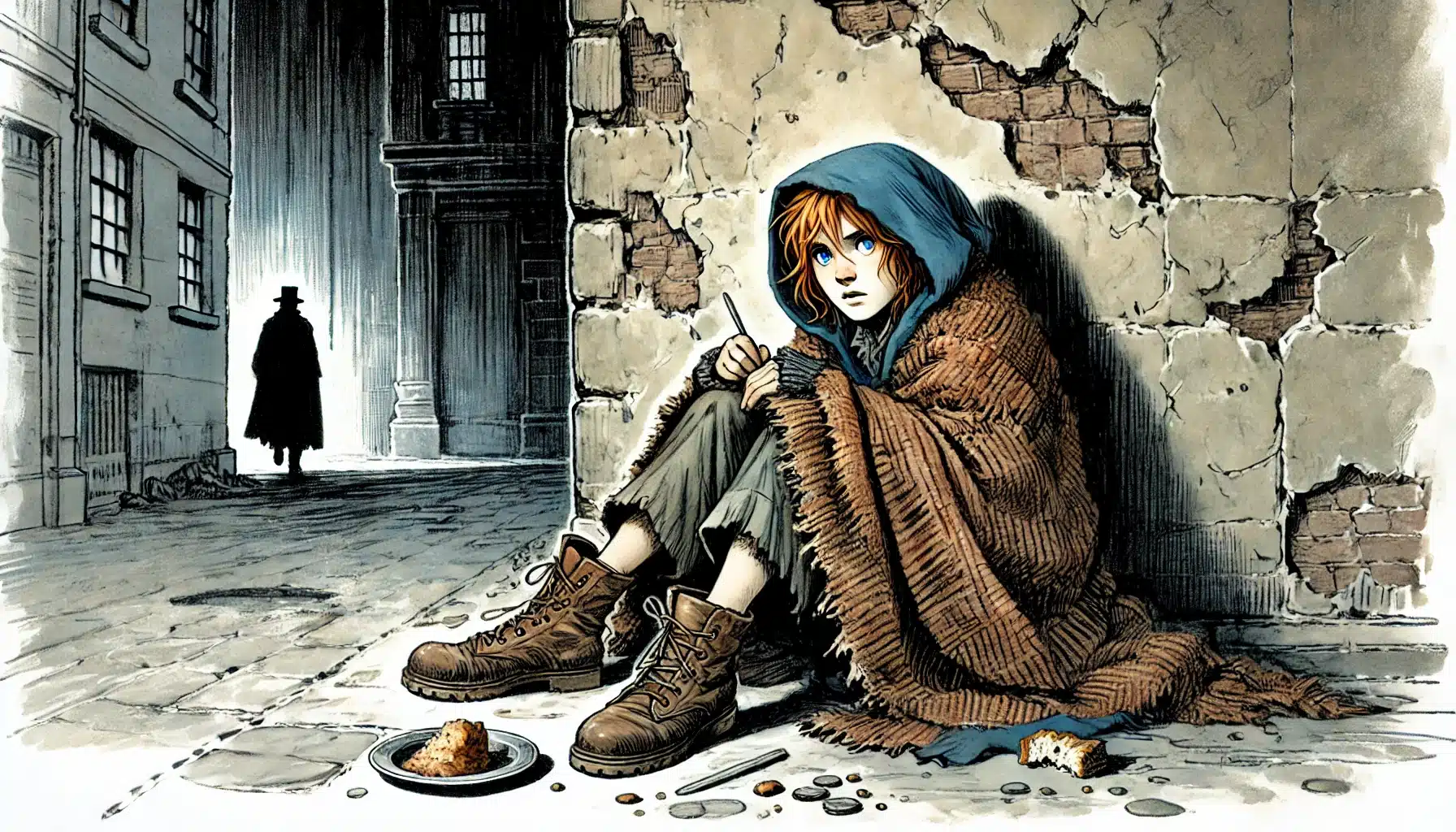Ah, the brave new TTRPG world where elves might prefer street food over fine dining, and wizards could potentially be sweeping more than just the floor of a grand library. Welcome to the whimsical realm of random social status rolls in D&D character creation, where your level 1 hero’s backstory is as much a roll of the dice as their hit points. Forget meticulously planned character arcs that make sense; embrace the chaos of a noble-born rogue who can’t sell ice to a fire elemental. This article explores the delightful mayhem of letting the dice determine your character’s social standing, prompting unexpected narrative riches and hilarious in-game moments.
Imagine this: you’re ready to create your next D&D character, and instead of rolling dice merely to assign ability scores, you’re also rolling to decide whether they were raised in a humble cabbage patch or in a castle with more rooms than they have fingers. By fate’s decree—or at least a die’s whim—your character’s destiny is handed a set of life experiences that make for some truly memorable storytelling opportunities. Not to mention the hilarious paradoxes that can arise, like a princess whose only treasure is a collection of very fancy rocks.
Such randomness can breathe life into character creation, transforming it from a structured process into a spontaneous eruption of creativity. It’s like ordering a mystery dish at a restaurant; you get to enjoy the flavorful surprise even if it’s an unexpected combination of ingredients. Players and Dungeon Masters (DMs) alike can savor this delightful unpredictability, crafting unique narratives that unfold as intricately as a tangled ball of yarn.
The Joy of Randomness in Character Creation
Randomness in D&D character creation acts like a master chef with a penchant for surprises, throwing unexpected ingredients into the pot. Players often find that when they let go of calculated plans and embrace the randomness, their characters spring to life with quirks and dimensions they didn’t anticipate. A die cast here might spawn a bard of noble birth who can’t hold a tune, or a druid who grew up in the bustling heart of a metropolis.
These random elements create a tapestry of personalities and backstories that are as diverse as the players themselves. The joy lies in the discovery—both for the player and the DM—as the character’s life unfolds in unexpected directions, sparking creativity and innovation. Whether your druid grew up as an urban orphan or your paladin was once a common street sweeper, the result is a richer, more engaging story.
Surprise is the secret ingredient that enhances the storytelling aspect of the game. Unpredictable character backgrounds fuel spontaneous role-playing moments and can lead to plot twists that no one at the table, not even the DM, could have foreseen. These elements help to forge a deeper connection with characters as they face challenges and utilize their peculiar backgrounds to solve problems in quirky, inventive ways.
Try my AI Tabletop RPG generators...and an extensive library of content!
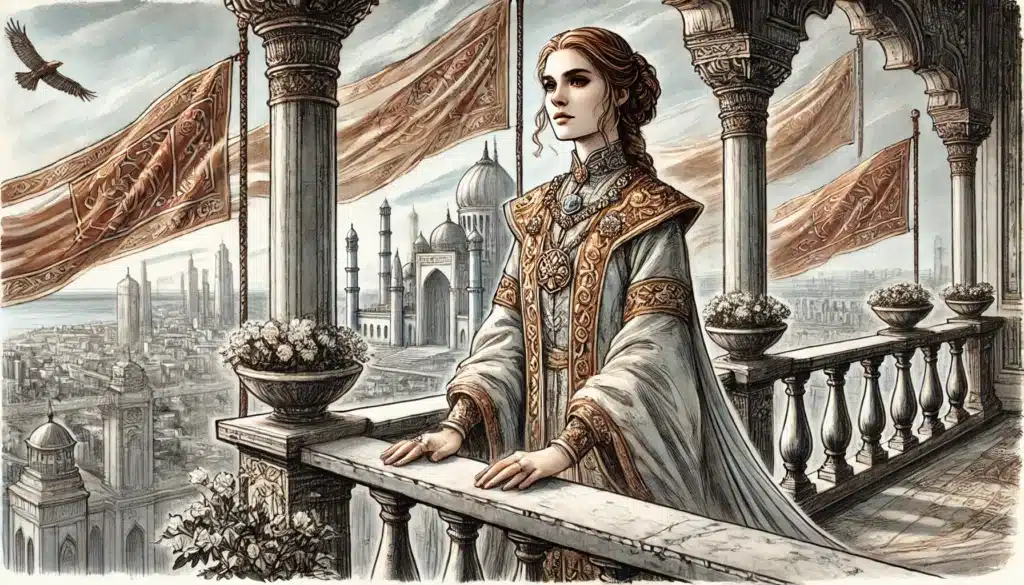
Rolling the Dice: Understanding Social Status
Social status in D&D settings is like your character’s calling card, influencing their interactions with the world, their decision-making, and even their personal goals. From lordly nobles wielding power to humble commoners living by their wits, social status can shape the way a character navigates their environment. These positions come with their own sets of perks and pitfalls, infusing the narrative with richness and depth.
The spectrum of social positions ranges from the lowest pauper to the grandest nobility, each offering a plethora of narrative opportunities. A highborn character might struggle with rebellion against their predetermined path while a lower standing character seeks to transcend their origins. Such variations invite players to explore complex themes of ambition, identity, and legacy, enriching the campaign’s tapestry with personal stakes and interwoven storylines.
Rolling for social status at the outset adds an element of depth and unpredictability to character backstories. It prompts players to consider how their characters’ social standing affects their worldview and ambitions, encouraging them to develop more nuanced, multidimensional characters. This unpredictable element can serve as a catalyst for storytelling, driving characters to evolve and adapt throughout their adventures.
- 1-10: The Pauper – Raised in abject poverty, this character knows the struggles of survival and may possess resourcefulness but lacks formal education or connections. Their background might inspire deep empathy for the downtrodden or a fierce ambition to climb the social ladder.
- 11-25: The Commoner – A hardworking individual from a modest family, this character has a strong work ethic and understands the value of community. They might have dreams of adventure or an innate curiosity about the broader world beyond their familiar surroundings.
- 26-40: The Merchant – Growing up in the world of trade, this character has a keen sense of value and negotiation. They may be shrewd in business or morally ambiguous, navigating the line between honest dealings and cutthroat competition.
- 41-60: The Artisan – Skilled in a specific trade, this character often carries pride in their craft. Their background enhances their perspective on beauty and functionality, fostering creativity and a desire to leave a lasting mark on the world.
- 61-75: The Gentry – This character hails from a minor noble family or landed gentry, enjoying some privileges without the weight of highborn expectations. They might possess informal education and social grace, perhaps leading them to be more open-minded or adventurous.
- 76-90: The Noble – Belonging to a prestigious house, this character often grapples with the expectations and responsibilities of their lineage. They may experience pressure to uphold family honor or rebel against societal norms, creating dynamic internal conflicts.
- 91-100: The Aristocrat – The pinnacle of social standing, this character embodies wealth, power, and influence. They may be blissfully ignorant of the struggles of common folk or driven by strong philanthropic impulses, often navigating complex political landscapes.
⚔️ Fantasy RPG Random Tables Books
Make life as a Gamemaster easier…
If you play Dungeons & Dragons, Pathfinder, or other fantasy RPGs, this
RPG random tables series
is packed with encounters, NPCs, treasure, and more. Available in eBook or print—either way, you’ll have a wealth of adventure ideas at your fingertips.
These categories each provide unique storytelling avenues, encouraging players to dive deeper into their characters’ motivations and interactions with others based on their social standing.
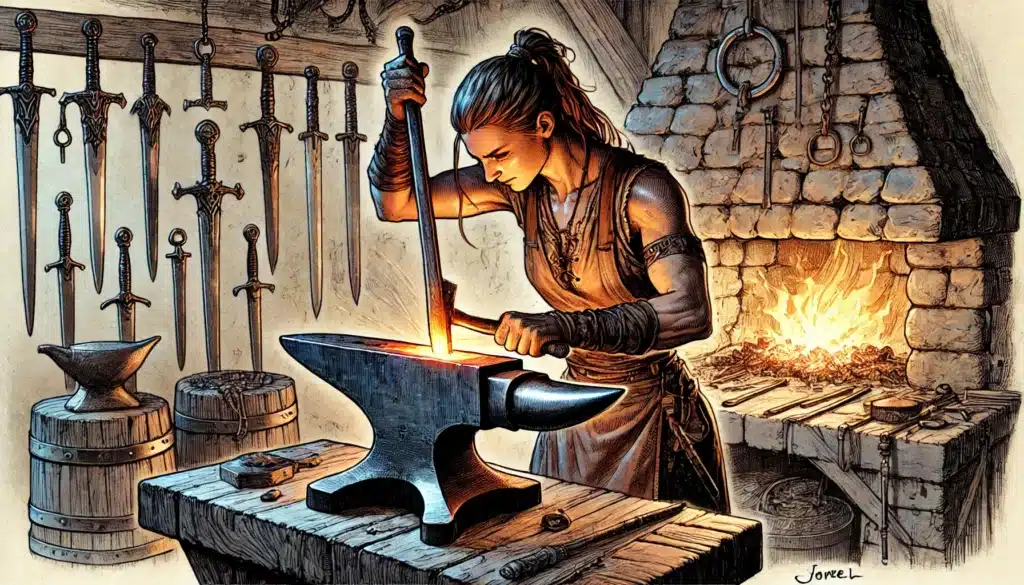
How to Roll for Social Status
Rolling for social status during character creation can be as simple as throwing a die and consulting a reference chart. Typically, a d100 is used to cover the full spectrum of possibilities, with each range on the chart representing a different social standing. The key to integrating this randomness is having a versatile chart that reflects the diversity of potential outcomes, from the downtrodden to the elite.
When incorporating rolled results into character backgrounds, it’s essential to weave these outcomes organically into the character’s story. Consider how the rolled status influences your character’s views, goals, and relationships. Whether you are a DM or a player, use these results as a framework to build on, adding layers to your character’s personality and history.
Here are some creative social status categories and their potential implications:
- Noble Nobodies: You have a noble title but no actual responsibilities or land.
- Genteel Beggar: Born into wealth, but a series of regrettable adventures left you penniless.
- Merchant Magnate: Running an empire of traveling shops, your influence rivals minor nobility.
- Curious Cleric: Raised in a monastic order, they have zero social skills, but plenty of holy revelations.
- Humble Hero: A local legend in a tiny village, your name is unknown beyond the borders.
- Sky Captain: Born in the clouds, sailors of the air treat you with reverence.
- Generous Giant: Known for legendary generosity often to the detriment of personal wealth.
- Disgraced Dandy: Once a darling of the social scene, now you’re collecting IOUs.
- Secret Society Member: You’re a high-ranked member but keeping it very hush-hush.
- Revolutionary Rogue: Lead a double life as a common thief and a people’s champion.
- Lighthouse Keeper: Given the responsibility of keeping the oceans safe, no one really appreciates you.
- Bard of the Backstreets: Renowned in shadowy circles for performances that never see the light of day.
Regardless of the roll, it’s essential to embrace the results, even if they seem challenging or unexpected. These random elements can become jumping-off points for the most compelling aspects of your character, driving both personal growth and plot development.
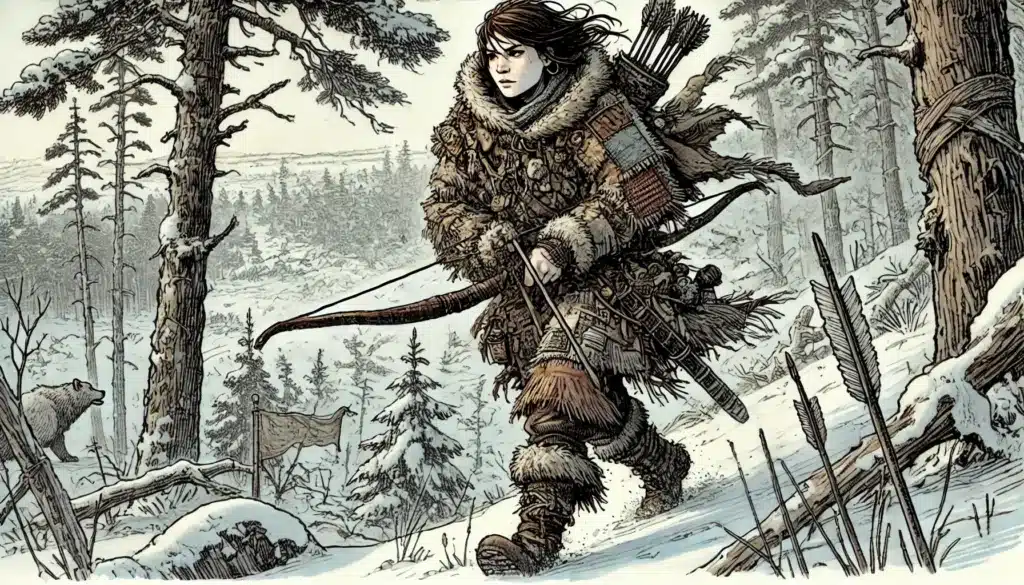
Crafting a Character Around the Roll
Once you’ve rolled for social status, it’s time to adapt your character’s traits, motivations, and personal history to fit—or defy—their given status. This is where creativity shines, as you delve into what makes your character tick. Maybe your noble-born warrior is motivated by a desire to escape the restrictive life of courtly expectations, or your lowly street magician dreams of performing for the king.
⚔️ Fantasy RPG Random Tables Books
Make life as a Gamemaster easier…
If you play Dungeons & Dragons, Pathfinder, or other fantasy RPGs, this
RPG random tables series
is packed with encounters, NPCs, treasure, and more. Available in eBook or print—either way, you’ll have a wealth of adventure ideas at your fingertips.
As you flesh out your character’s background, consider how their social status might fuel their ambitions, forge rivalries, or inspire loyalty. Techniques such as reflective journals or character sketches can help you explore these nuances, breathing life into your character beyond simple stat blocks and abilities. The beauty of this process lies in crafting a persona that evolves and interacts with the world in unexpected ways.
| Social Status | Typical Occupations | Potential Character Motivations |
|---|---|---|
| Noble Nobodies | Idle Aristocrat | Seek purpose outside of title |
| Genteel Beggar | Street Artist | Regain lost fortune |
| Merchant Magnate | Caravan Leader | Expand business empire |
| Curious Cleric | Wandering Monk | Quest for enlightenment |
| Humble Hero | Village Protector | Prove worth to larger world |
| Sky Captain | Airship Pilot | Explore uncharted territories |
| Generous Giant | Community Benefactor | Balance charity with self-care |
| Disgraced Dandy | Socialite | Revive tarnished reputation |
| Secret Society Member | Shadow Operative | Uncover deeper truths |
| Revolutionary Rogue | Freedom Fighter | Dismantle oppressive systems |
| Lighthouse Keeper | Beacon Guardian | Maintain isolation, seek company |
| Bard of the Backstreets | Underground Performer | Gain recognition beyond shadows |
Embracing the contradictions and unexpected journeys that arise from these rolls enriches the character’s story potential. The challenge lies in weaving these elements together to create a narrative that is compelling, cohesive, and full of surprises.
Incorporating Random Social Status into Campaigns
Dungeon Masters can utilize characters’ social statuses as key components within the overarching campaign narrative. A character’s background might affect how they are perceived in different regions or influence their access to resources and information. Perhaps the party’s quest is to restore a fallen noble to their rightful place, or a revolution is brewing in which the characters must decide their allegiance based on class ties.
Bold campaign ideas that incorporate social status include:
- The Lost Heir: A noble character discovers they are the last descendant of a fallen house and must reclaim their legacy.
- The Society of Shadows: Members of a secret organization manipulate events from behind the scenes, and one character is unwittingly involved.
- The Class Uprising: Peasant characters ignite a rebellion against oppressive nobility, with unexpected allies on both sides.
- The Dragon’s Court: Only characters of noble birth can enter the dragon’s inner circle to negotiate peace.
- Merchant Wars: Rival merchant families vie for control of a valuable trade route, drawing all characters into the conflict.
- The Great Masquerade: An annual ball brings together all walks of life under disguise, revealing hidden connections and tensions.
- The Outcast’s Quest: A character exiled from noble society seeks redemption or revenge with the party’s help.
- The Noble Adventurer’s Guild: Characters of various statuses join a prestigious but mysterious guild, each with secret goals.
- The Last Rites of the Ancients: Only a bloodline of commoners is capable of wielding ancient magic to save the realm.
Integrating these elements into the storyline adds narrative richness and immersive play experiences. Characters’ decisions and interactions can pivot based on their standing, prompting players to engage with the world and its complexities deeply.
Social Status in Diverse Settings
The significance and roles of social status vary dramatically across different D&D settings, with each environment offering unique interpretations and challenges. In an urban setting, the social ladder might be a chaotic tapestry of guilds and secret societies, while rural environments might emphasize family lineage and local reputation. High-magic worlds could see status intertwined with magical prowess, whereas low-magic settings might focus on more earthly distinctions like land ownership and trade skills.
| Setting Type | Typical Social Hierarchies | Character Adaptation Strategies |
|---|---|---|
| Urban | Guilds, Merchant Princes | Navigate complex trade politics |
| Rural | Clan-based, Village Elders | Leverage local knowledge and connections |
| High Magic | Mage Nobility, Arcane Councils | Foster alliances with powerful spellcasters |
| Low Magic | Feudal Lords, Agricultural Barons | Embrace simple living, focus on resource management |
| Frontier | Pioneers, Settlers | Cooperate for survival, explore uncharted areas |
| Pirate | Pirate Lords, Crew Hierarchies | Build respect through deeds, gain notoriety |
| Underwater | Marine Aristocracy, Tribal Leaders | Adapt to aquatic society needs |
| Desert | Nomadic Chieftains, Oasis Rulers | Utilize trade caravans, form alliances |
| Frozen | Tribal Chiefs, Seers | Survive harsh climates, value resourcefulness |
| Jungle | Shamanic Councils, Warrior Clans | Respect nature, balance aggression |
| Mountain | Dwarven Guilds, Stone Lords | Forge strong community bonds, focus on mining |
| Underdark | Drow Houses, Deep Dwarves | Master underworld politics, craft secret alliances |
Characters can adapt their strategies and goals based on the nuances of their setting, adjusting their path to reflect the intricacies of their environment. Emphasizing creative thinking allows players to reshape social status elements to suit different settings, enhancing the gaming experience.
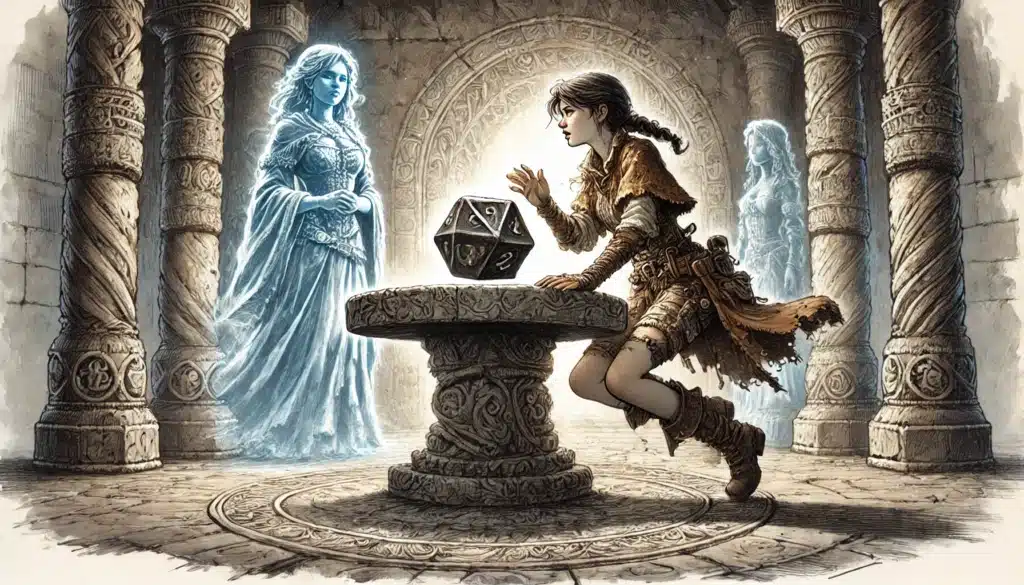
Humorous Twists on Social Status Rolls
Infusing humor into the character creation process with random social status rolls can yield uproarious outcomes. Consider a wealthy noble who never learned to handle money, now in debt to goblin loan sharks. Or perhaps a monk who believes they’re the reincarnation of a legendary hero, yet can’t remember any past-life skills.
Some comedic character scenarios born from social status rolls could be:
- Title Holder Without Land: A noble with an impressive title but not a single acre to their name.
- The Befuddled Bureaucrat: A clerical worker who accidentally rose through the ranks and is now in command, but doesn’t know what of.
- The Mystical Mooch: A wizard who casts spells but refuses to leave their mom’s basement.
- The Clueless Aristocrat: A high-born elf who thinks tax collectors are a type of monster.
- The Helpless Hero: A renowned adventurer afraid of spiders, often found hiding under tables.
- The Fashion-Fixated Fighter: A warrior more interested in their armor’s aesthetic than its defense.
- The Noble Nomad: A prince who prefers sleeping in stables to his own castle.
- The Awkward Arbiter: A justice-seeking paladin who can’t make small talk without divine guidance.
- The Wealthy Wanderer: A merchant prince who gave away their fortune after a fortune-teller said it would bring bad luck.
- The Cowardly Commander: A general who won battles solely by tripping and triggering ambushes.
- The Unassuming Underboss: A crime lord who’s never committed any crimes.
- The Royal Recluse: A king who’s allergic to the throne and prefers life as a hermit.
- The Dragon’s Delight: A bard hired by dragons to sing lullabies, but who only knows sea shanties.
Humor plays an invaluable role in enhancing the enjoyment and camaraderie of D&D sessions, encouraging players to laugh at their misfortunes and relish the zaniness.
| Roll (d20) | Humorous Twist on Social Status |
|---|---|
| 1 | A wealthy merchant whose prized possession is a pet rock collection. |
| 2 | A noble born bard, but they can only sing in animal languages. |
| 3 | A peasant convinced they are the rightful heir to a stolen crown. |
| 4 | A former street urchin who now thinks they’re royalty due to a lucky coin. |
| 5 | A wealthy wizard who is a complete klutz in the presence of simple spells. |
| 6 | A failed noble who spends their days trying to sell “vintage” trash. |
| 7 | An aristocrat with a phobia of anything remotely noble. |
| 8 | A monk from a poor background who believes they are a god in disguise. |
| 9 | A regal knight who can’t remember to wear pants under their armor. |
| 10 | A rich socialite obsessed with knitting sweaters for wolves. |
| 11 | A bard from a noble family who can’t remember any song lyrics. |
| 12 | A wealthy scholar who is terrified of books. |
| 13 | A peasant who constantly throws lavish parties they can’t afford. |
| 14 | A paladin from a noble line who runs away from fights out of fear. |
| 15 | A commoner who believes they are the reincarnation of a legendary hero but can’t remember how to fight. |
| 16 | An exiled noble who thinks they’re low-key hiding treasure but it’s just junk. |
| 17 | A highborn who has never tasted anything beyond the finest cheeses and finds spicy food unbearable. |
| 18 | A noble who has been raised by goblins and mimics their mannerisms. |
| 19 | A noble child fostered by a family of jesters, always ready with bad jokes. |
| 20 | A paladin from a noble family who has sworn an oath to protect kittens. |
These comedic scenarios not only provide laughs but also serve as a reminder that every character, regardless of their social standing, has the potential for growth and self-discovery. The absurdity of a character’s situation can lead to memorable bonding moments among the party, as adventurers rally to help their financially inept noble learn to budget—or teach a deluded monk that true heroism doesn’t come from past lives, but from the actions they take in the present. Such humorous twists can spark lively role-playing opportunities, forging strong narratives filled with laughter, camaraderie, and unexpected lessons that elevate the campaign to delightful heights. So, when rolling for social status, keep an open mind and have fun with the kooky outcomes; after all, in the unpredictable world of D&D, a touch of whimsy is just as integral to the journey as the epic quests that await!
Final Thoughts on Random Social Status Rolls
Embracing random social status rolls in D&D character creation invites a vibrant blend of creativity, spontaneity, and humor into the game. These rolls serve as fertile ground for imagination, challenging players to adapt and innovate while weaving complex, multilayered narratives. By welcoming the unpredictability of these rolls, players and DMs can explore themes of identity, destiny, and social dynamics in a way that is both engaging and entertaining.
The key to successfully leveraging random social status rolls lies in the acceptance of uncertainty and the thrill of discovery. Whether a character’s journey involves overcoming the constraints of their birth or reveling in the privileges it bestows, the narrative potential is boundless. This element of chance not only heightens engagement but also fosters a dynamic tabletop experience that resonates with players long after the dice have settled.
Creativity and adaptability are central to making the most of these rolls, encouraging players to craft stories that defy expectations and embrace the chaos of the unexpected. By integrating these elements into campaigns, both players and DMs can unlock a treasure trove of narrative possibilities, enriched by the rich nuances of social standing and personal ambition.
In the grand tapestry of D&D, social status is but one thread, but by allowing it to unravel through random rolls, players and DMs alike can create characters and worlds brimming with life, complexity, and humor. Ultimately, it’s about finding joy in the journey and crafting an experience that is uniquely your own. Let the dice roll and the stories unfold!

